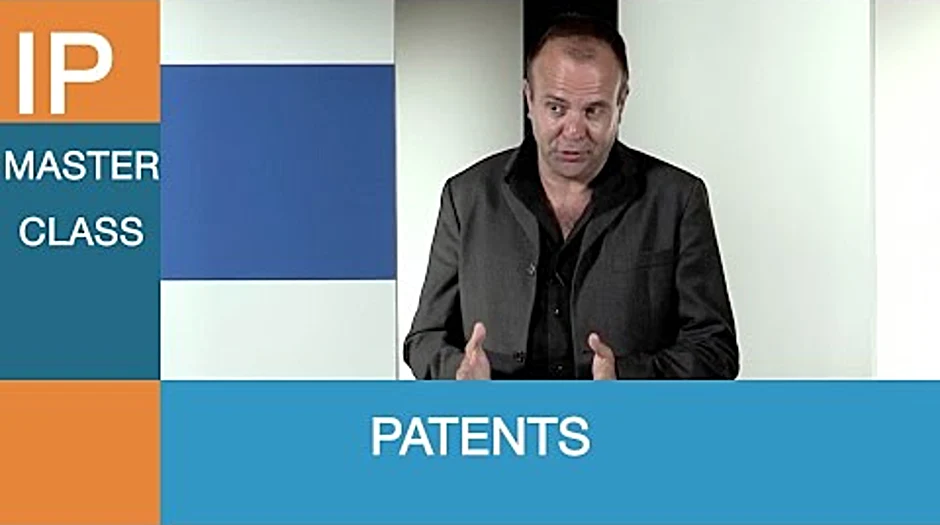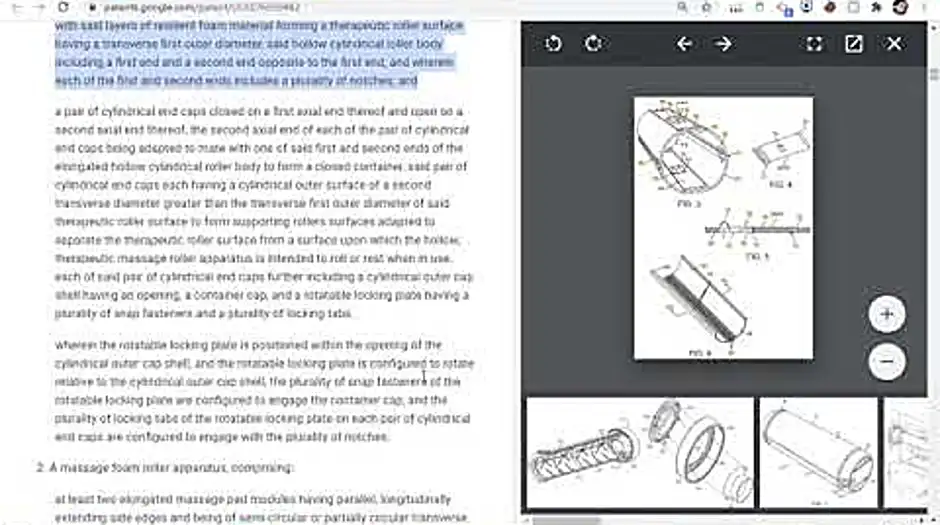how to check patent in uk [Definitive Guide]
Table of Contents
- How do I verify a patent?
- How long is a patent good for?
- How do I find out if an idea is already patented?
- What happens after 20 years of a patent?
- Can I produce and sell an already patented product?
- Can you sell a patent?
- What is poor man's patent?
- Can I file patent myself?
- How do I do a patent search for free?
- How long does a patent search take?
- Are Google Patents reliable?
- Are patent applications public UK?
- What is patent search tool?
- How do I trace a patent number?
- Do patents exist in the UK?
- How long does a patent last in UK?
- How much does a patent cost?
- How much does a patent search cost?
- How do I do a patent search on Google?
- Do patents expire?
Last updated : Sept 22, 2022
Written by : Cristobal Gonchoff |
Current |
Write a comment |
How do I verify a patent?
- Name.
- Assigned identification number (e.g., medical record number)
- Date of birth.
- Phone number.
- Social security number.
- Address.
- Photo.
Are patent applications public UK?
Eighteen months after the patent application was filed it is automatically published and is available for anyone to look at. This is not a granted patent and you cannot sue anyone yet for using your invention. Within six months of publication you must pay a further fee and request examination.
How do I trace a patent number?
Patent Number Searching If you know the patent number use either Google Patents or the USPTO website to find the patent.
Do patents exist in the UK?
A UK patent has a life of 20 years and provides protection throughout the UK so long as renewal fees are paid every year. For a patent to be granted the invention must be: Novel. Inventive.
How long does a patent last in UK?
Before applying for a patent, check it is the right type of protection for your intellectual property. A patent lasts 5 years. If you want it to stay in force after that, you must renew it every year, up to a maximum of 20 years.
How much does a patent cost?
A patent attorney will usually charge between $8,000 and $10,000 for a patent application, but the cost can be higher. In most cases, you should budget between $15,000 and $20,000 to complete the patenting process for your invention. Previous: Why should you file a patent application?
How much does a patent search cost?
A patent search cost can be anywhere from $100 to $3,000 depending on the complexity of your invention and covers research into existing patents and patent applications. You can use free online tools to do your own search, but an attorney can help you dig deeper.
How do I do a patent search on Google?
- Open the URL: www.google.com/patents.
- Type the name of the idea or some brief bit of text about the idea.
- Click Search.
Do patents expire?
Patent Expiration Utility patents expire four, eight, and 12 years after issuance of the patent if the maintenance fees are not paid at these points in time. The patent actually expires at 3.5 years, 7.5 years, and 11.5 years, but there is a six-month grace period in which to pay the maintenance fee.
How long is a patent good for?
Patent protection is granted for a limited period, generally 20 years from the filing date of the application. Is a patent valid in every country? Patents are territorial rights.
How do I find out if an idea is already patented?
Search the USPTO Check out the official website of the United States Patent and Trademark Office (USPTO) and click on the Full Text and Image Database. Search for existing patents, images and patent applications by using words that describe your idea.
What happens after 20 years of a patent?
Why can't patents be renewed once they've lived out their 20 years? A patent becomes public domain (free for use by the public) upon its expiration, which is defined as 20 years from the patent's earliest non-provisional filing date. MPEP §201.04. The 20-year patent term applies to utility and plant patents.
Can I produce and sell an already patented product?
The U.S. Supreme Court in a recent ruling has opined on the rights of a purchaser to use and resell patented products. The patent system give the patent owner the right to exclude others from making, using, and selling the patented invention, for the life of the patent.
Can you sell a patent?
Selling a patent allows the inventor to generate income that will help pay the bills or finance other promising ideas. Selling a patent outright also eliminates the huge financial outlay required to start up a business based on a new product.
What is poor man's patent?
A poor man's patent is essentially writing out a description of your invention and then mailing that written description to yourself. This postmarked envelope supposedly acts to create the date of your invention as the date this written description was postmarked.
Can I file patent myself?
You can file a patent application on behalf of yourself or your co-inventors. Alternatively, you can hire a registered patent agent or attorney to file your application for you. Patent applications require both legal and technical expertise and even small mistakes can dramatically compromise the value of the patent.
How do I do a patent search for free?
- USPTO. The U.S. Patent & Trademark Office provides free patent searching of its public databases.
- Google Patents. A relatively easy database to search which PDF images available. Limited to U.S. patents and U.S. published applications.
How long does a patent search take?
A patent search takes 1 to 2 weeks to complete after receiving drawings and a written explanation of your invention.
Are Google Patents reliable?
For business owners who don't have the budget to hire a firm to perform patent searches for them, Google Patents is a good option. Google Patents' Advanced Search provides a number of impressive filters, especially helpful for searchers who are astute and well-versed in Google's database and features.
What is patent search tool?
Patent Law ResourcesPatent Search. Patent search tools help you conduct a patent search. Conducting a patent search helps ensure your invention hasn't already been patented by someone else.

Check these related keywords for more interesting articles :
How to find patents by company
How to play copyrighted music on twitch
Intellectual property rights definition of
Trademark registration class 3
Intellectual property law notes in uganda
How to get patent rights for an idea in india
How to select non copyright images
Brand protection report amazon
How much does it cost to patent something in canada
Intellectual property crime rate
How to center copyright footer wordpress
How do i trademark a word
How to buy brand clothes cheap
Trademark or register phrase
Intellectual property time limit
Did you find this article relevant to what you were looking for?
Write a comment
Comment by Barton Schuff
Thanks for this great article
Thanks for your comment Barton Schuff, have a nice day.
- Cristobal Gonchoff, Staff Member
Comment by hermanaK
hello my name is dr. mark loony doctor Looney is my real name if you born with a surname like mine you've got to get a PhD really it's kind of rude not to so my PhD is in acoustics and this gives me insight into signal processing and that kind of thing which allowed me to come and work here at the IPO as a patent examiner in telecoms there telecoms patents I've been in the news a lot recently in 2012 Apple were awarded a billion dollars in damages from Samsung that case will be appealed over the next few years but it does show how financially important these kinds of decisions can be so I'm going to talk about passed a patent is a 20-year monopoly granted in return for full and open disclosure of your invention the web pattern comes from the Latin for openness mmm in order to reward innovation reward research and because the world would be a very different place if the only way you could make money from your idea was to keep it secret so it's long been recognized that the state does need to kind of step in here and interfere and provide some kind of reward for that innovation in order to get a patent your invention needs to fulfill three criteria firstly does it have an industrial application is it something you can actually make or a process you can actually carry out the provides some kind of technical contribution a stroke that gets rid of all kinds of creative and artistic ideas they're more the purview of copyright and it gets excludes things called business methods if the only thing that your idea contributors a business advantage rather than a technical advantage that's unlikely to be patentable and it need not just be a financial transaction in the past I've objected to a method of giving you your television program when you've watched enough adverts so it's kind of you buy in the program with your time and attend Shin elsewhere in the office we've had a case where the idea was a prisoner could get a shorter sentence by submitting to corporal punishments can i buy in time with pain so these are all considered business methods there's various other exclusions as well and this also gives us patent examiner's a little bit of a shortcut we often get applications for things called a perpetual motion machines okay where you get for more energy out than you could possibly get via the laws of thermodynamics this allowed us to say your invention hasn't got an industrial application come back when you've got your Nobel Prize so the second criteria is novelty is it new has it ever been done before not just has it been patented people but has it ever been done in public if it has if it forms what we call the state of the art the prior art and we say that your invention is anticipated and you can't have that monopoly so when we get a case wheel try and find the closest example of your invention in the prior art and we can look everywhere really and one of the most fruitful sources of these kinds of citations is of course the applicants own publications first rule of patents is like the first rule of Fight Club you do not talk about your invention at least not with someone who hasn't specifically promised to keep it secret until you actually apply to us now this doesn't mean that we're kind of East German Stasi officials bugging tables in restaurants and these kinds of things if you tell your friend in the pub they will almost certainly behave as if they're under some kind of confidentiality agreement but just be aware that it is possible that a later date they could tell us that you divulged your information in a public place which might stop you getting your monopoly at the third criterion and not only does what you've done have to be new never been done before it also can't be obvious based on what has been done before indeed what's called an inventive step as patent examiner's what we do is we become a kind of imaginary person okay an imaginary person with no imagination no inventive capability at all one judge called him a Ned or a team of Ned's and surprisingly civil servants don't have that much trouble becoming this person in the course of their day so we will ask ourselves we look at your invention will compare it to the closest thing we found from the prior art and we'll ask would this invention be obvious to this expert who knows an awful lot about this technical subject matter but is unable to make any actual inventive step himself that's the kind of test for inventive inventive step so there's your three criteria and there's the general ethos of the patent system X very much you
Thanks hermanaK your participation is very much appreciated
- Cristobal Gonchoff
About the author

Cristobal Gonchoff
I've studied atmospheric electricity at St. Louis Christian College in Florissant and I am an expert in mathematical biology. I usually feel impressed. My previous job was military analyst I held this position for 21 years, I love talking about hiking and oragami. Huge fan of George Bernard Shaw I practice scuba diving and collect steiff teddy bears.
Try Not to laugh !
Joke resides here...
Tags
How long is a patent good for
How do I find out if an idea is already patented
What happens after 20 years of a patent
Can I produce and sell an already patented product
Can you sell a patent
What is poor man s patent
Can I file patent myself
How do I do a patent search for free
How long does a patent search take
Are Google Patents reliable
Are patent applications public UK
What is patent search tool
How do I trace a patent number
Do patents exist in the UK
How long does a patent last in UK
How much does a patent cost
How much does a patent search cost
How do I do a patent search on Google
Do patents expire
 : 3918
: 3918

